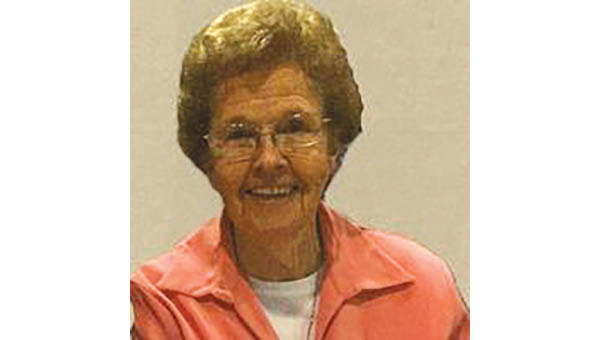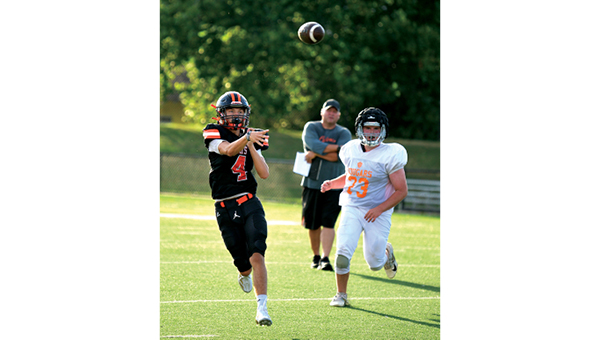Cracking my shell; thoughts on emotional detachment, the Gaza war, and compassion
Published 9:06 am Tuesday, June 24, 2025
|
Getting your Trinity Audio player ready...
|
By Sarena Neyman
Every spring, someone in my town posts hand-drawn TURTLE CROSSING signs near the roads where turtles lay their eggs. I’d never actually seen one crossing and used to wonder why anyone bothered with these signs.
But then yesterday, I spotted a small painted turtle inching across the road, likely returning to the pond after burying her eggs. I considered moving her, but worried I’d throw off her inner compass.
Trending
Then today, on a morning bike ride, I saw a massive snapper the size of a watermelon, slowly making her way across the asphalt. I got off my bike and paused the podcast I’d been listening to: Peter Beinart’s interview of Israeli journalist Gideon Levy.
Levy said many Jews, both in Israel and the U.S., shut their hearts to Palestinian suffering. They skip the disturbing images of destruction and starvation, avoid the headlines, ignore the unbearable. His words brought to mind The Zone of Interest, the Oscar-winning film about an Auschwitz commandant’s family unmoved by the screams beyond their walls. What’s chilling is how ordinary people adapted, how they built lives alongside atrocity by refusing to see the victims as fully human.
As I stood by the turtle, a car pulled up. The driver rolled down the window. “Should we move it?” she asked. We both admired the majestic, prehistoric-looking creature, its jagged shell and ancient eyes, like a living dinosaur that had somehow lumbered out of the deep past. These animals have not changed in 90 million years.
“I don’t think it’s safe to move a snapper unless you’ve done it before,” I said.
She nodded, rolled up her window and carefully drove around it.
I was pulling out my phone to take a photo when I saw another car approaching. I assumed they saw the huge turtle. I didn’t wave or signal. Surely they’d slow down.
Trending
But then, in an awful instant, I realized they weren’t slowing down at all. The impact was immediate. The snapper was thrown into the air. When she hit the ground, I heard a sound I will never forget: her shell exploding beneath the tire — a violent, cracking thunder that tore through my ears. The car never even slowed down.
It felt like something in me had cracked too.
I’m not someone who cries easily. I have a hard shell — quicker to think than to feel. Maybe it started in childhood. I was the one who had to wake my grandmother from her nightmares. No one else heard her cries at night, but my room was next to hers. I hated the job. A Nazi soldier had ripped her 4-year-old daughter from her arms. She never saw the little girl again.
Shaken by the turtle’s death, I got back on my bike and resumed the podcast. Levy was describing a Palestinian friend in Gaza with only two days of insulin left. This is everyday life in Gaza, says Levy. We all know what happens when severe diabetics can’t get their insulin, he adds.
The death of the turtle reminds me of how vulnerable the earth’s creatures are and the cruelty of humans. I hear the high-pitched screech before a bomb explodes, the scream of a father pulling his daughter’s body from the rubble, the cries of hungry children with ribs like birdcages.
It’s strange what breaks through. It’s rarely facts or numbers. Dozens of Israeli children were killed by Hamas on Oct. 7. Thousands upon thousands of Palestinian children have been killed since that date. Among much of the Jewish community I grew up in, one number evokes national mourning. The other is met with silence.
In a recent interview, Ezra Klein spoke with writer Kathryn Schulz about the challenge of staying emotionally awake. “I spend days covering efforts to rip health care from people and torch the global economy,” Klein said, “and then I’m supposed to go to a birthday party.”
We can’t live every second in full awareness, Schulz tells him. We’d collapse. But, she says, if we’re lucky enough to feel suffering only indirectly, we must choose, again and again, not to look away — even if we don’t know how to intervene.
Throughout the day, I keep remembering the snapper’s death. The arc her body made in the air. The shattering crunch. These turtles can live for up to 100 years. Who knew how many years were cut from her life? She had survived predators, pollution, drought. And then in an instant, she was smashed to pieces.
I am haunted by my inaction. Why didn’t I wave at the car? Why didn’t I hold up my hand? I keep thinking about how preventable it all felt. How easily we destroy what we don’t slow down to see. How easy it is to detach from it all.
Over time, the memory of this day will fade. But I want to remember that sound — that cracking. Because in its violence, it connected me to the fragility of life, the tragedy of indifference, the ease with which one becomes numb — and how dangerous that can be.
(Sarena Neyman, syndicated by PeaceVoice, is a writer living in western Massachusetts whose essays have appeared in HuffPost, Business Insider, Common Dreams, Cabin Life and The Christian Science Monitor.)





